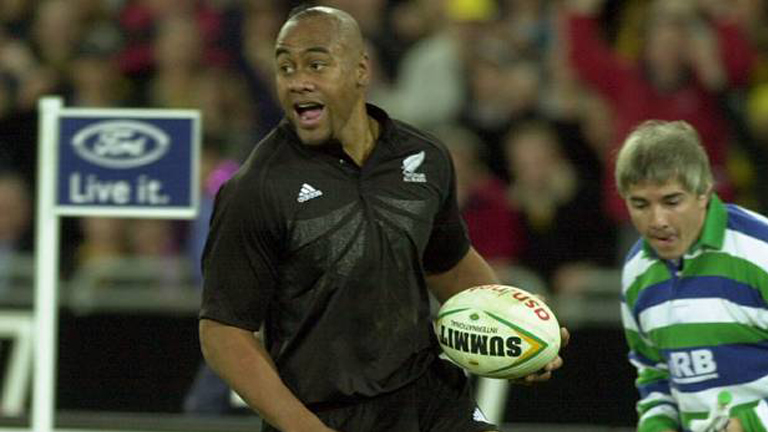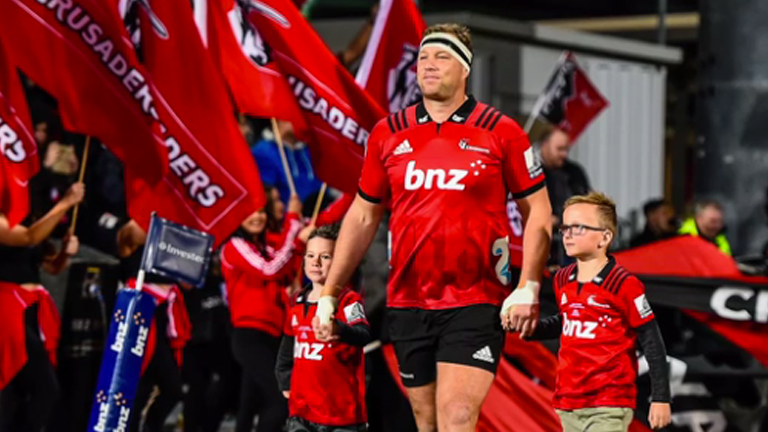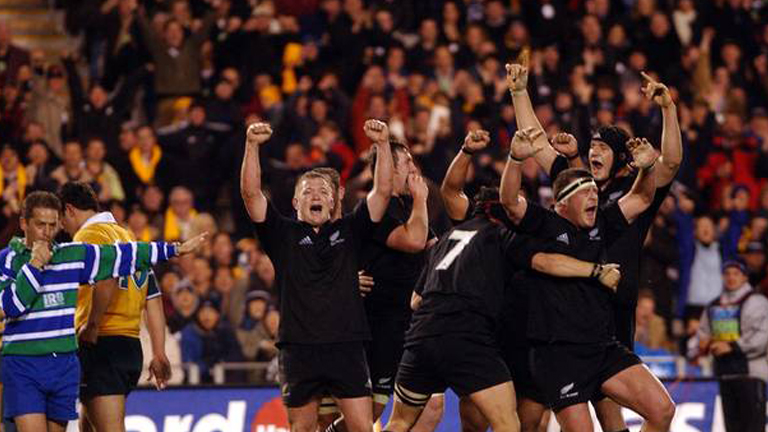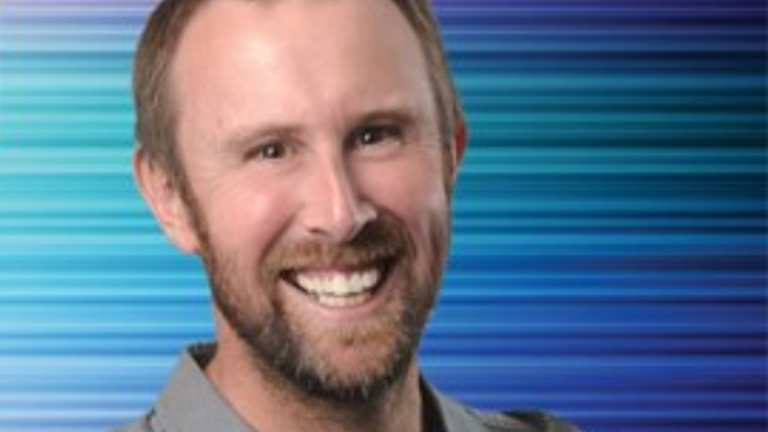Rainbow Warriors
Words / Patrick McKendry. Images and video: Kai Schwörer / Getty Images. Design / Nathan Meek
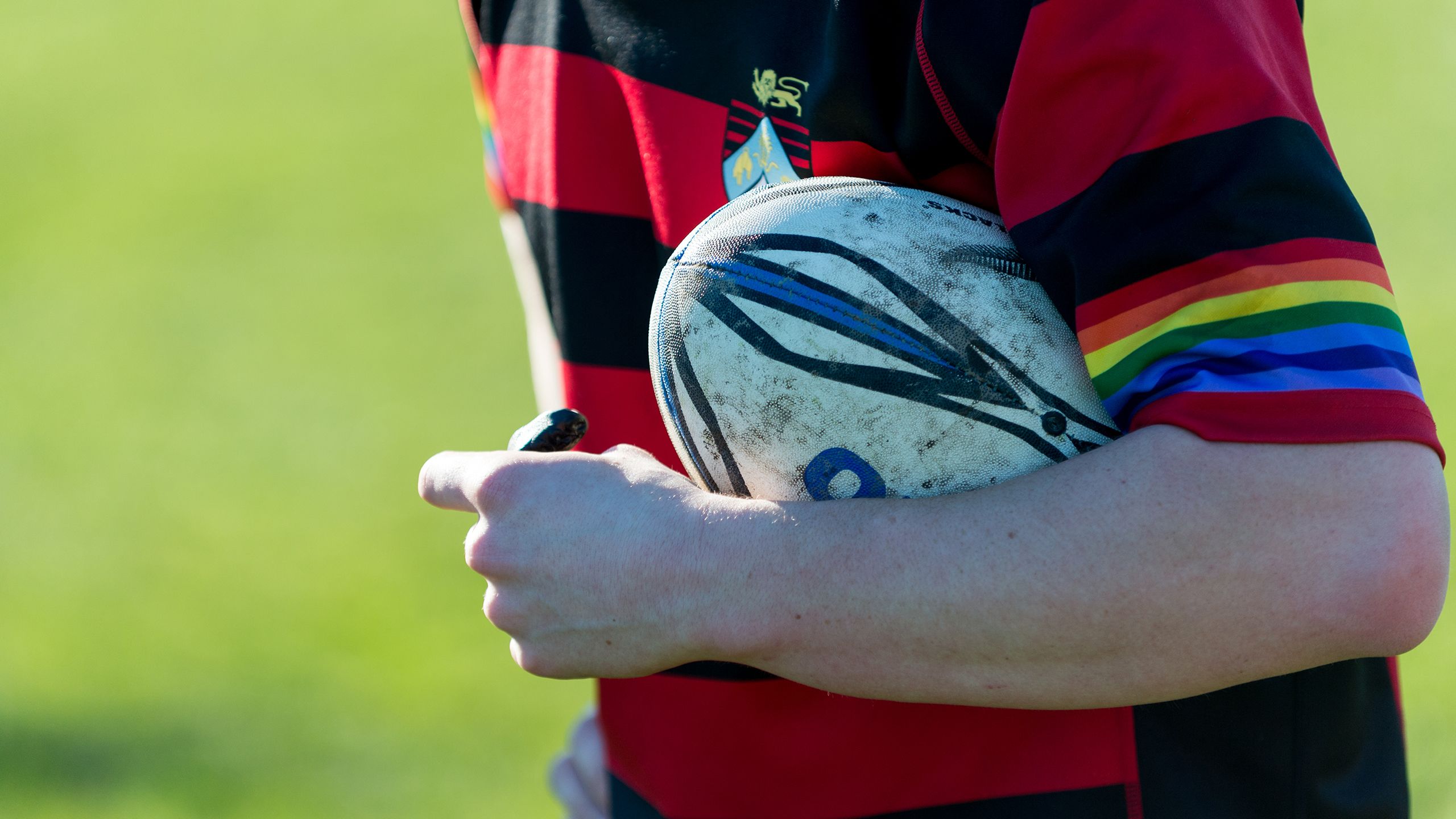
In a small corner of suburban Christchurch, a couple of clearing kicks away from the champion Crusaders' Rugby Park headquarters, there is a revolution happening and it wears rugby boots and isn’t averse to a drag show or two.
The Christchurch Heroes are a gay and inclusive rugby team – meaning they are LGBT friendly – and are associated with the Christchurch Rugby Football Club, which was formed in 1863 and claims to be the oldest football club in New Zealand and the second oldest rugby club in the world. It has produced 32 All Blacks.
The club is also moving – very quickly – with the times, and many would say more quickly than expected. Christchurch as a city has changed following the earthquakes and whether the Heroes’ firm and fast acceptance into a traditionally masculine and potentially threatening environment is a result of that change is impossible to say, but what isn’t up for debate is that improved tolerance is a good place to start for a city’s rebuild.
The Heroes are Canterbury’s only gay and inclusive rugby team and have just finished their first season – their final game was on the day the Crusaders beat the Lions to win back-to-back Super Rugby championships - and they celebrated on the following Friday night with a function at the city’s casino, attended by at least 300 people, all of whom left thoroughly entertained early the next morning after several drag acts, a strip show or two, and, finally a dance party.
It hardly needs to be stated that it wasn’t your usual end-of-season rugby bash. It is said that some of their (straight) clubmates have become rather envious at how organised and together the Heroes are; not to mention the sidelong glances at the strong support they receive on the sidelines and their halftime energy snacks.
As a team they are following in the sprig marks of the New Zealand Falcons, a gay and inclusive team associated with Auckland’s Ponsonby club, but the Heroes are forging their own path in Christchurch, a city traditionally seen as extremely conservative. Rugby clubs in Christchurch are seen as even more conservative; they have traditionally been a bastion of macho culture and seen rightly, or wrongly, as intolerant of difference.
But the Heroes, who take their position as role models extremely seriously – knowing they will be scrutinised by both the gay and straight communities on and off the field – have found that isn’t necessarily the case.
What are the team all about? Manager Andrew Rusbatch, a 39-year-old who works in publishing IT, takes up the story: “It’s just about guys wanting to play rugby but it represents a little bit more than that for us as a community.
It’s about inclusivity in sport and challenging some of those stereotypes; both that the straight and gay communities have had.
“What we’ve found since myself and [fellow manager] Rawa [Karetai] and the team members have been involved is that there’s often the perception that there’s this massive amount of homophobia in sport… I guess the gay community and straight community had their pre-conceptions. We expected a bit more of a backlash or homophobia and thus far there hasn’t been – we’ve actually been really well supported by the club.”
Setting up the team in the Senior Division 4 competition and playing on a Saturday afternoon is one thing, walking into a clubrooms on a Saturday night when the drink is flowing is quite another for those still mentally scarred by the attitudes from within the sport many of them played as youngsters.
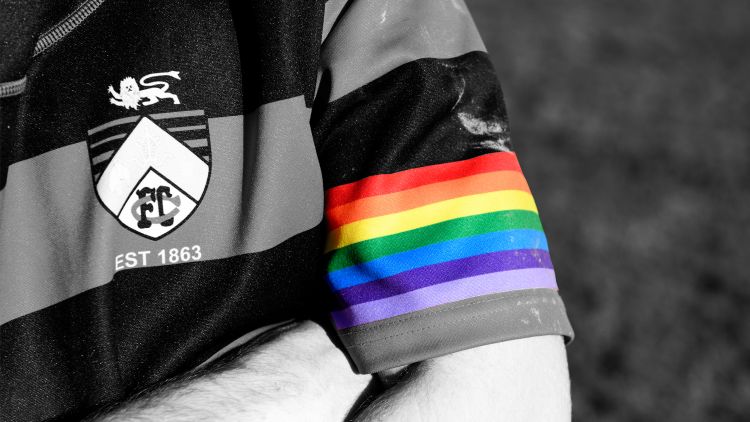
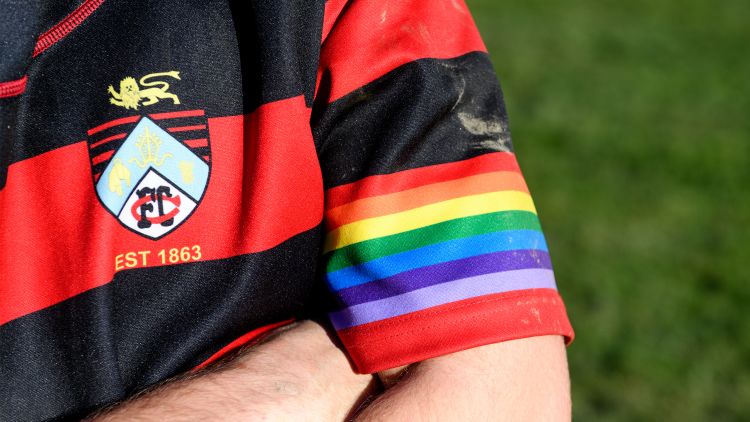
Karetai, a 32-year-old originally from Southland who works in governance and sits on several boards, found it very hard to make that first step. “We did a research project a few years ago on homophobia in sport with [human rights foundation] Kaleidoscope Australia.
In that report it shows there is a lot of homophobia in sport.
"Having been part of that research project, when I first walked into the clubrooms I was like ‘Oh my gosh, this is a really foreign environment’,” he says.
Flanker Raymond Wedlake, a 30-year-old who installs blinds and curtains for a living, says: “He wouldn’t walk in by himself. He waited until I was there".
Karetai: “I didn’t feel comfortable walking into that space at all. It was the same for most of the boys. A lot of them haven’t played rugby before or they haven’t since they were quite young, and our experiences in high school playing for the first XV or second XV, especially at an all-boys school like myself, wasn’t very nice especially if you were gay.
“Basically, what we’ve experienced is the complete opposite. It has been phenomenal and all the other clubs have been great.
“We’ve been able to pull down those barriers in a very straight world and the club itself has said they needed it for them to have that mix and help provide a safe space for the gay and transsexual community.”
Rusbatch: “Our first experience of the club came when we were invited back to the clubrooms. For someone who hasn’t been involved in club rugby since I was 14, it felt like walking into the lion’s den. We thought, ‘man, we’re going to stick out here’, but we didn’t and that’s been really fantastic. The way we’ve been supported by other teams, again, has really challenged our preconceptions too.
“The other really important thing we try to impress on the boys in our team is that every time we’re out on the paddock with those jerseys (with rainbow sleeves) on we’re role models. There will be some people who will be watching who don’t feel they identify with the traditional gay stereotypes – the glitter, the mardi gras, hot pants, that kind of thing – and these are guys who may look at an inclusive team with a lot of gay guys in it and think, ‘you know what, I’m gay but those are the kinds of guys I identify with’.
“It’s really important we’re aware that people are watching us. We’re offering an alternative to the traditional gay stereotype.”
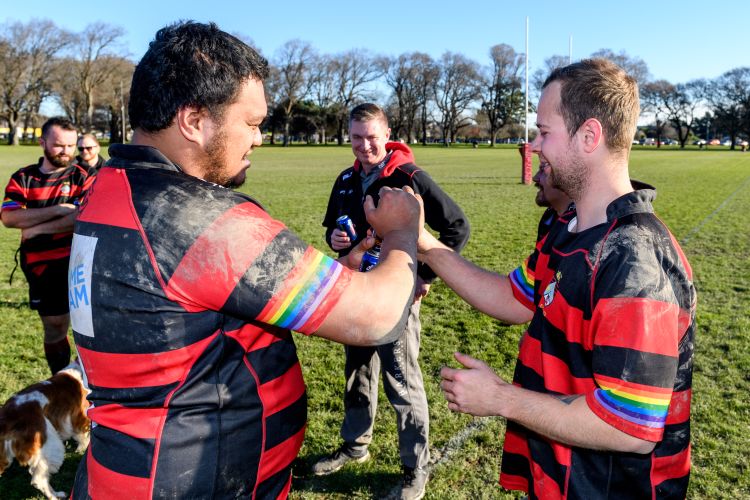
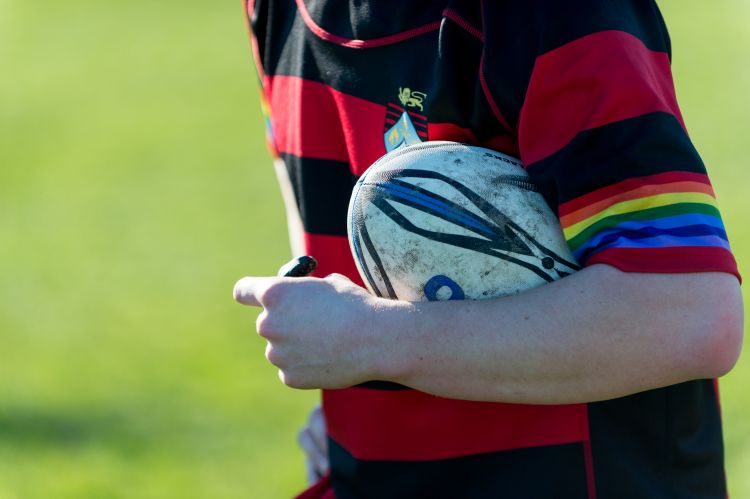
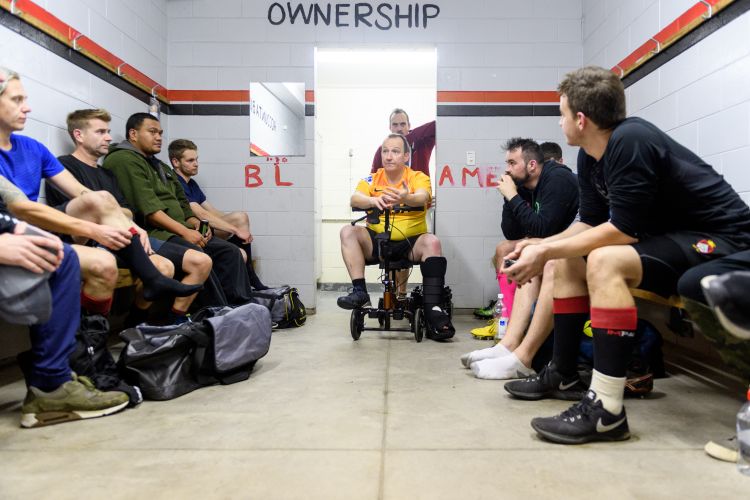
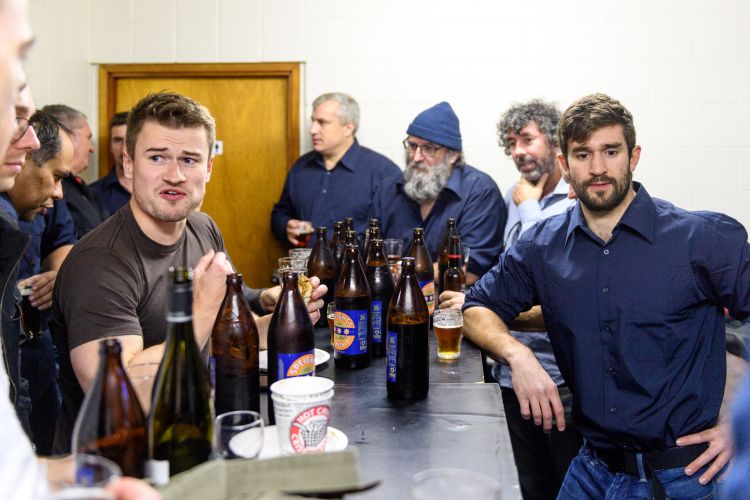
This is a good news story for rugby and Christchurch and for New Zealand Rugby, who have made big moves towards becoming more diverse and here it is proof positive. It also reflects well on the Canterbury Rugby Union, who have made the Heroes feel welcome, but probably more so the Christchurch club, who have backed up their talk with actions and plans for the future.
It comes, too, in the wake of Wallabies star Israel Folau’s beliefs about the ultimate fate of homosexuals which he has spread far and wide on his social media accounts. Folau received a backlash of sorts from the rugby community – in particular Chiefs halfback Brad Weber, who stated on Twitter: “My cousin and her partner, and my Aunty and her partner are some of the most kind, caring & loving people I have ever had the pleasure of knowing. To think that I play against someone that says they'll go to Hell for being gay disgusts me.”
Weber’s remarks, and those made by others, were seen by many as a watershed moment for the game here. And, not surprisingly, the Heroes were pleased to read them.
“It’s a tricky one because everyone has their beliefs,” says Rusbatch of the Folau controversy which dominated the news cycles for many days this year. “If we’re trying to suppress someone else’s right to free speech and push our own agenda it makes us just as bad as them. We’re fairly open minded about it. People have their beliefs and they’re entitled to them.
“The issue there really was what kind of message that sends when he’s a role model in the community. It wasn’t so much what he said. It wasn’t a big surprise to us. There are going to be elements of society [that think like that], you’ll find it in the church community; we’re not everyone’s cup of tea and we’re not trying to be.
“It was really gratifying for us to see the reaction to that from the wider community – that does give us confidence that we have moved on a bit. The response was indicative of that.”
The Heroes have mixed abilities as far as rugby skills go. There were 25 in their squad this year and they were aged between 20 and 47. They are made up of tradesmen, IT workers, retail and hospitality workers.
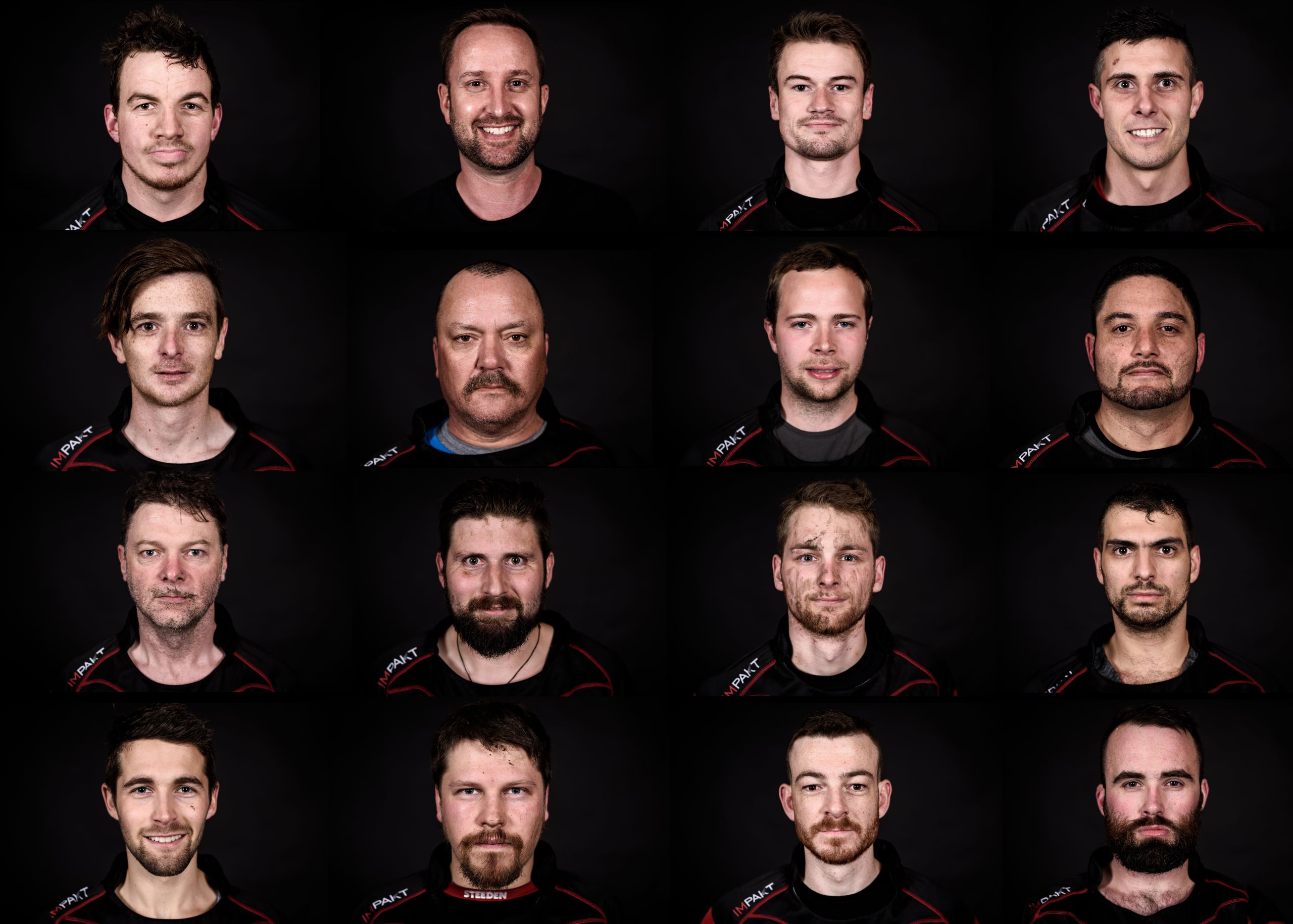
They are a small team size-wise and there were many injuries throughout the season. In the last two weeks of the season, two players were taken off the field on stretchers, one with concussion and the other with five broken bones in a foot. But there was improvement too.
Loose forward Wedlake, asked about the “results” this season against the other seven teams in the division whom they played twice, quite rightly turned the question on its head.
“It depends on what you consider results,” he says. “The scorelines, yes, but the results in terms of morale in the team is always positive. We’ve been asked, twice, I think, whether we wanted to stop because the score was at 100 points but no one wanted to stop. It’s an 80-minute game and we want to play the whole 80 minutes.”
Rusbatch: “All new teams go through that. Another team at the club, the Canardlys, have a 25-year history with the club. They play in the same division. They used to get thumped every week too but the trick is to keep turning up. And we’re learning and improving.
“Through the competition we play each team twice and every team has come back after our second game and said ‘wow, you guys are really improving’. We’ve started to play cohesively as a team and we’re learning a lot. The scoreline may not always reflect that but we’re putting in solid tackles and the ball skills are increasing. The general skill level of the team is increasing.”
Wedlake: “A lot of the guys have never touched a rugby ball before. You’re coaching at different levels.”
Karetai: “If you’re looking at results in terms of building a community and a strong, safe environment, being able to go across different spectrums of rugby, community, family, then that is a win. We’ve got huge support through the community.”
A look at the Heroes’ website shows how much financial support they have received in only their first year. They are now planning fundraisers for not only their own team and club but also the wider Christchurch community. Their can-do attitude is probably one of the reasons why they are so popular at the club.
“It is fairly typical of the gay community – we are all quite well connected and we do tend to help each other out,” says Rusbatch. “The number of sponsors we have… I guess it’s for two reasons – we’re doing something that’s quite different in terms of getting involved in sport which isn’t something the gay community has traditionally been involved in and secondly the gay community tend to look after our own.”
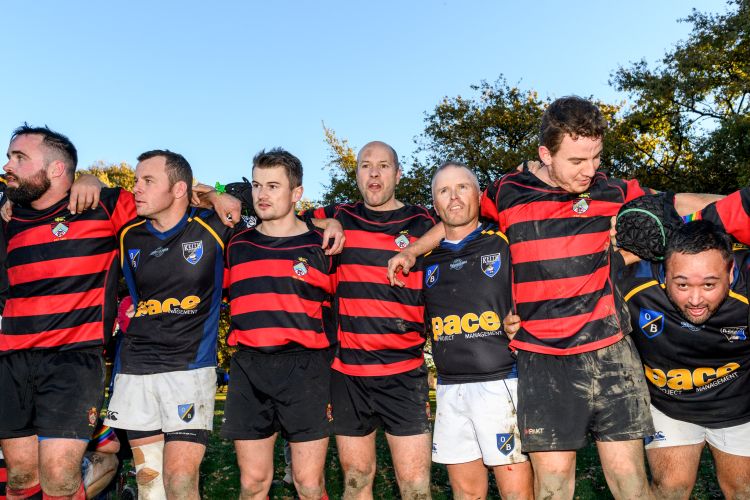


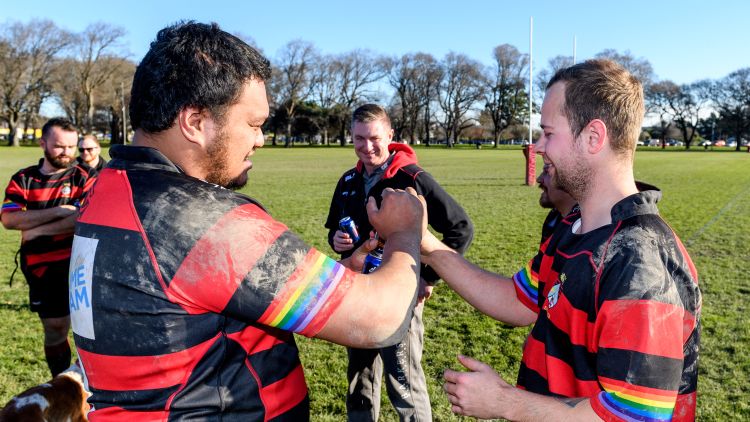
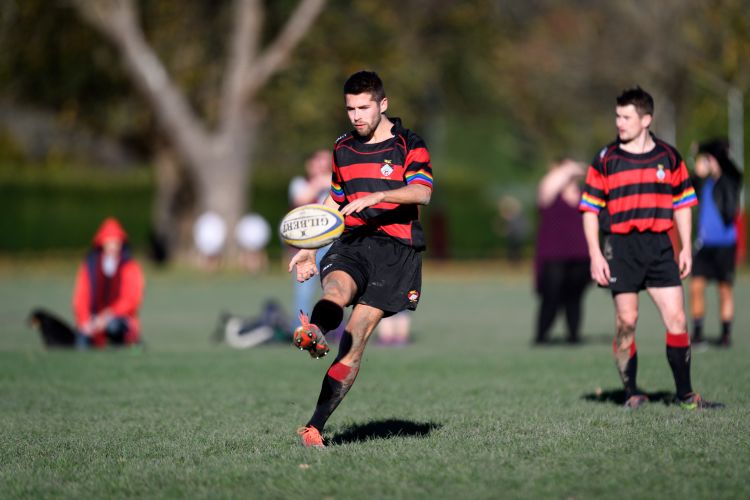
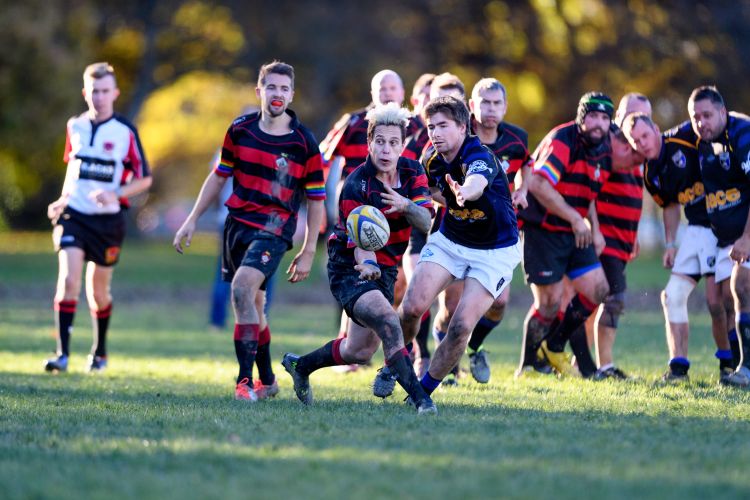
It’s probably not overstating the case that the Heroes are providing an important service in terms of improving the physical and mental health for often marginalised and at-risk individuals. And that’s another reason why they are so proud of what they have achieved in the short time of their existence and are so positive about what’s ahead.
“We’ve found there are a lot of people within the gay community who don’t feel they are connected to anything,” says Rusbatch.
“One example of that is that we have a trans woman who comes along to watch our games. She doesn’t feel she fits into the trans community either because there can be politics there... a straight person may not understand what a big step that is – for a trans woman to turn up to a rugby match is huge.
“But the fact is maybe somewhere deep down she sees herself as an underdog supporting an underdog. We’re seeing people who have not connected with any of the traditional groups within the gay community who are connecting with our team or joining the team. That level of support for us is very humbling because some of them are taking equally or a bigger risk turning up to a rugby sideline. That’s a very masculine environment.”
Why so positive about the future? A couple of weeks after our first meeting, the Herald made contact again with Rusbatch, who revealed the Christchurch club had been in touch.
“I got a phone call from the Christchurch club and they have invited me to have a seat on the board of directors which is a fantastic vote of confidence from the board and also from the club. For New Zealand’s oldest football club that’s really something,” he says.
“He was like ‘do you want to have a think about it’, and I was ‘no, no, I definitely want to do it’. I think their rationale behind it is diversity but also changing the way that we [the club] think.
“They want a fresh set of eyes looking at the traditional model of rugby clubs, they’re thinking, ‘okay, how do we do things differently?’ I’m really pleased that they’ve invited a member of our community to be part of that. They’re not just talking the talk, they definitely want us there and they value our opinions.”
A gym in Papanui has offered the Heroes free membership, which should go some way to helping with fitness during the off-season, and they are already talking about entering more than one team into the local touch tournament.
But what it all comes down to is the changing of attitudes, of acceptance, and a sense in belonging.
Rusbatch said there were cases this year of some players’ parents on the sidelines watching them play sport for the first time.
“That’s pretty bloody special.”
And that’s something everyone can surely agree on.

